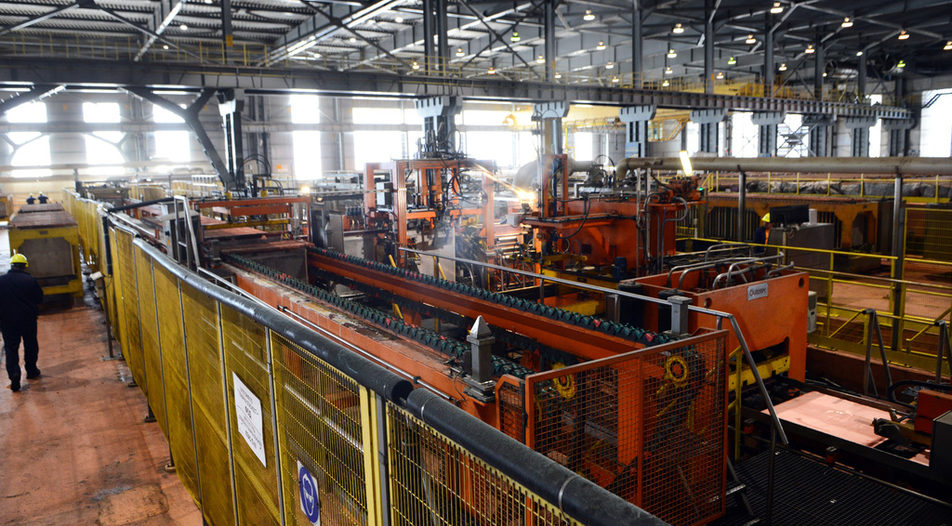The pandemic and resulting crisis shrank Bulgarian exports by 6.4% year-on-year in 2020, to 54.7 billion levs (28 billion euro), according to preliminary data from the National Statistical Institute (NSI). The decline is hardly a surprise as Bulgarian export-oriented manufacturing firms found themselves right in the middle of the disruption in European value chains. For example, the Italian lockdowns froze demand for Bulgarian textiles, resulting in a 12% decrease in clothes exports in 2020 despite an increase in mask sales abroad. Meanwhile, Bulgarian automobile components manufacturers suffered from the drop in vehicle sales.
All in all, the demand for Bulgarian goods decreased both in the EU and non-EU countries. However, the largest contribution to the decline belongs to fuels. As international oil prices collapsed amid record-low demand for fuels, sales of Bulgarian fuels halved to 2.55 billion levs in 2020. Meanwhile, on the plus side, exports got a boost from sales of refined and unrefined copper, which grew by 636 million levs on the year to over 4.8 billion levs in 2020.
Unsurprisingly, imports also declined - by 8.9% to 60.1 billion levs (30.7 billion euro) in 2020. Here, too, the drop can largely be attributed to fuels but households' declining vehicle purchases also contributed to a 20% decrease in car imports. In the end, the Bulgarian trade balance remained negative but the gap narrowed to 5.4 billion levs in 2020, compared to 7.5 billion levs in 2019.
The crisis in Europe
Bulgaria's exports of goods to the EU decreased by 4.1% to 35.8 billion levs in 2020, according to preliminary estimates. The decline is significant because EU countries account for two-thirds of foreign demand for Bulgarian goods.
The largest contributor to the 2020 decline with 2.1 percentage points was fuel exports. Sales of motor fuels like gasoline, kerosene, and diesel decreased by 44% to just over 1 billion levs because of the weaker demand and the collapse of global oil prices in 2020.
Exports of several commodity groups rose despite the crisis, the most significant of which were copper products where exports increased by 9.4% to 2.56 billion levs. A country breakdown shows that the boost was mainly due to rising sales in Belgium (by 280 million levs). The largest company of note here is Pirdop-based copper producer Aurubis Bulgaria - the indisputable leader in Bulgarian metallurgy with close to 5 billion levs in revenues in 2019.
Exports also increased significantly in the commodity group of "other made-up textile articles" in which sales doubled in 2020 to 319 million levs. The group includes goods such as textile bags, rags, hospital sheets, and face masks. Judging by the trends in textile manufacturing in 2020, it's likely that the face masks were the reason for the increase in exports to France, Germany, Belgium, and Romania.
One of the positive trends in Bulgarian exports over the past two decades has been the increasing share of higher value-added products. For example, the machinery's share in total exports has risen from 10% in 2000 to close to 26% in 2020. Unfortunately, the crisis decreased machinery exports by 4.4% year-on-year to 14.1 billion levs in 2020. On the flip side, this trend began to reverse towards the end of the year as industrial activity in Europe began to recover. For example, in December, exports to the EU grew at a double-digit rate compared to the same period of 2019. The main contributor was, once again, copper sales, but exports of machinery and equipment such as refrigerators, freezers, dishwashers, liquid pumps grew by 25% on an annualized basis to 273 million levs, providing a significant boost.
Beyond the EU market
Bulgarian exports of goods to countries outside the EU decreased by 10.5% to 18.9 billion levs in 2020. This decline was almost entirely due to weaker fuel exports which decreased from 3.78 billion levs in 2019 to 1.54 billion levs a year later. The biggest drop was registered in the Turkish market where fuel exports fell by 71% to 351 million levs. Egypt, another large market for Bulgarian fuels, also saw a drop in demand, resulting in a decrease in exports by 400 million levs compared to 2019.
Here, too, a positive contribution to exports to third countries came from copper exports which saw an increase of close to 23%, to 2.26 billion levs. The increase was largely driven by demand from Turkey where Bulgarian copper exports rose by 61% to 768 million levs. In second place, after an understandably weak start of the year, was the Chinese market where sales increased by 10.5% to close to 1.2 billion levs.
The pandemic and resulting crisis shrank Bulgarian exports by 6.4% year-on-year in 2020, to 54.7 billion levs (28 billion euro), according to preliminary data from the National Statistical Institute (NSI). The decline is hardly a surprise as Bulgarian export-oriented manufacturing firms found themselves right in the middle of the disruption in European value chains. For example, the Italian lockdowns froze demand for Bulgarian textiles, resulting in a 12% decrease in clothes exports in 2020 despite an increase in mask sales abroad. Meanwhile, Bulgarian automobile components manufacturers suffered from the drop in vehicle sales.
All in all, the demand for Bulgarian goods decreased both in the EU and non-EU countries. However, the largest contribution to the decline belongs to fuels. As international oil prices collapsed amid record-low demand for fuels, sales of Bulgarian fuels halved to 2.55 billion levs in 2020. Meanwhile, on the plus side, exports got a boost from sales of refined and unrefined copper, which grew by 636 million levs on the year to over 4.8 billion levs in 2020.












